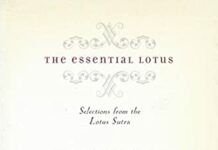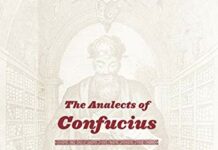
Ebook Info
- Published: 2003
- Number of pages: 128 pages
- Format: PDF
- File Size: 1.21 MB
- Authors: Burton Watson
Description
Du Fu (712–777) has been called China’s greatest poet, and some call him the greatest nonepic, nondramatic poet whose writings survive in any language. Du Fu excelled in a great variety of poetic forms, showing a richness of language ranging from elegant to colloquial, from allusive to direct. His impressive breadth of subject matter includes intimate personal detail as well as a great deal of historical information—which earned him the epithet “poet-historian.” Some 1,400 of Du Fu’s poems survive today, his fame resting on about one hundred that have been widely admired over the centuries. Preeminent translator Burton Watson has selected 127 poems, including those for which Du Fu is best remembered and lesser-known works.
User’s Reviews
Editorial Reviews: Review “Du Fu, long regarded as China’s greatest poet, excelled in a variety of lyrical forms, displaying a richness of language that incorporated formal elegance and powerful colloquialism, flowery allusion and spare, unembellished verse… Watson has selected 127 poems for this collection, including those for which Du Fu is best remembered and several lesser known works that deserve to be rediscovered.” — “Translation Review”Du Fu, long regarded as China’s greatest poet, excelled in a variety of lyrical forms, displaying a richness of language that incorporated formal elegance and powerful colloquialism, flowery allusion and spare, unembellished verse . . . Watson has selected 127 poems for this collection, including those for which Du Fu is best remembered and several lesser known works that deserve to be rediscovered. About the Author Burton Watson is one of the most respected translators of Chinese and Japanese literature. He has translated Chinese and Japanese classics such as Chuang Tzu: Basic Writings, Ryo¯kan: Zen Monk-Poet of Japan, and The Lotus Sutra. Ryûichi Abé is Kao Associate Professor of Japanese Religious Studies in the Departments of Religion and East Asian Languages and Cultures at Columbia University. He is the coauthor of Great Fool: Zen Master Ryôkan -Poems, Letters, and Other Writings, and has been a recipient of the Philip and Ruth Hettleman Award for distinguished teaching.
Reviews from Amazon users which were colected at the time this book was published on the website:
⭐China’s most beloved poet and with Li Bai acclaimed greatest, Du Fu appears to pose a special challenge for translators. Even the well-respected Watson gets more criticism than usual for this book. Translators make use of their own poetic skills and vocabulary. These things either attract readers or repel them. Burton Watson’s vocabulary could detract occasionally from the sense of the poems (as the commentator “Henry” feels), but I always gravitate to Watson because his renderings convey a clear and reasonable sense of meaning.
⭐One major complaint: Table of Contents gives no specific titles. Better executed Kindle books have detailed contents pages that aid navigation to specific chapters or poems.
⭐OK Translating Chinese poetry is impossible, but Du Fu is too important a poet for English readers to ignore. This is the best English translation available. The cover is wonderful but the graphic design inside is noisy. Also the book really needs a table of contents that lists the poems inside.
⭐Burton Watson’s collection of Du Fu translations presents 135 poems, including most of the poet’s best-known poems. They are presented in chronological order, each with notes on the circumstances of its composition and explanatory footnotes where necessary. Each poem has a page to itself, although the notes and numbering are sometimes intrusive aesthetically.The poems are preceded by a chronology and an introduction sketching Du Fu’s life and identifying the main characteristics of his works: there are no particularly penetrating insights on offer here, but this is a useful summary for those not yet familiar with him. Vitally, however, what the book lacks is any kind of indexing: there is no contents list for the poems, no title index and no index of first lines. Unless one knows the date of composition, therefore, there is no way of finding a particular poem short of flicking through the whole book.The translations themselves steer a middle course between the naturalisation and barbarisation camps: as an example, his translation of Spring View is as follows:Spring ProspectThe nation shattered, mountains and river remain;/city in spring, grass and trees burgeoning./Feeling the times, blossoms draw tears;/hating separation, birds alarm the heart./Beacon fires three months in succession,/a letter from home worth ten thousand in gold./White hairs, fewer for the scratching,/soon too few to hold a hairpin up.The first notable touch is the title itself: the word “prospect” brings out the double meaning of the view in springtime and the prospects for the country. In the first line, Watson declines to clarify the relationship between the two parts of the line with a conjunction, but the translation of zai as “remain” economically achieves the same effect. “Shattered” and “burgeoning”, however, seem unnecessary elaboration of Du Fu’s simpler vocabulary.The translation of the second couplet is confused and consequently confusing. The original Chinese is ambiguous as to whether it is an observer or (metaphorically) the flowers and birds which feel, weep, hate and are alarmed. Watson seems to attempt to replicate this ambiguity, but can only do so by conflating the two interpretations: the flowers and birds feel and hate respectively, but the observer weeps and is alarmed. It must be preferable to accept that the ambiguity, as so often in Chinese poetry, is untranslatable and to choose one interpretation for the translation.This is in fact exactly what Watson does in line 5; the original text speaks of beacon fires as being “connected”, but does not narrow this down to connection in either space or time. Again, this ambiguity cannot be replicated in English, and Watson this time opts to translate the temporal connection only.In each of the last four lines, Watson follows the original in leaving out active verbs; the beacon fires, the letter and the hairs don’t do anything. The danger with this approach is that it can come across as overly telegraphic and stilted in English; whether Watson’s striking of the balance between fidelity and naturalness is acceptable must be for each reader to decide.
Keywords
Free Download Selected Poems of Du Fu in PDF format
Selected Poems of Du Fu PDF Free Download
Download Selected Poems of Du Fu 2003 PDF Free
Selected Poems of Du Fu 2003 PDF Free Download
Download Selected Poems of Du Fu PDF
Free Download Ebook Selected Poems of Du Fu




